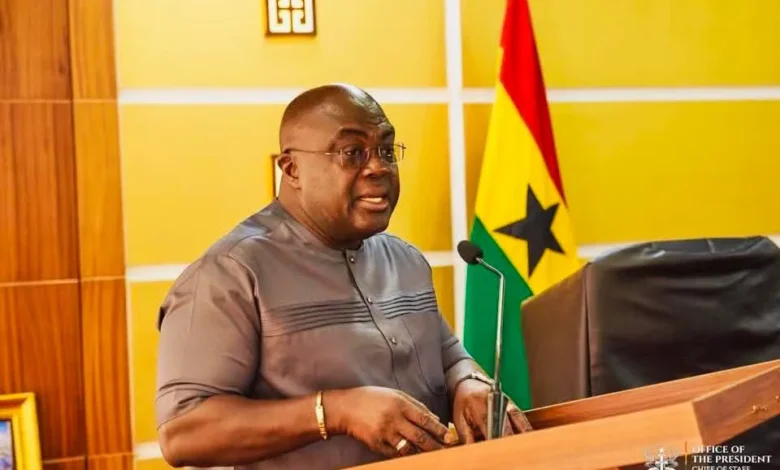
In a decisive move to reinforce Ghana’s anti-corruption efforts, Chief of Staff Julius Debrah has officially launched the National Anti-Corruption Strategy Development Working Group, signaling a renewed national commitment to integrity, accountability, and good governance.
The formation of this Working Group marks a significant milestone in the government’s ongoing efforts to fight corruption and promote ethical leadership. The initiative aims to lay the groundwork for a comprehensive, national anti-corruption strategy that addresses systemic weaknesses and promotes transparency at all levels of government and public service.
A Clear Commitment to Integrity
Speaking at the launch, Julius Debrah emphasized the government’s determination to foster a corruption-free environment where public officials and institutions operate with integrity and are held accountable for their actions.
“The government is committed to creating a corruption-free environment where public officials and institutions serve the people with integrity,” he stated.
The newly established Working Group will be responsible for designing and developing a robust anti-corruption policy framework. Its core objectives include identifying key areas vulnerable to corruption, strengthening institutional accountability mechanisms, and creating effective preventive strategies to combat corrupt practices across the public and private sectors.
Focus Areas of the Initiative
Key components of the initiative include:
-
Strengthening institutional frameworks and enforcement mechanisms
-
Enhancing transparency in public service delivery
-
Promoting ethical conduct among public officials
-
Encouraging civic participation in anti-corruption efforts
-
Building collaborative partnerships with civil society and the private sector
The strategy development process will be inclusive and participatory, drawing on expertise from various sectors and encouraging public engagement to ensure that the final strategy reflects the needs and values of Ghanaians.
Restoring Public Trust
By launching this initiative, the government seeks to restore public trust in state institutions and demonstrate its resolve to hold individuals accountable, regardless of political affiliation or position. The ultimate goal is to ensure that Ghana’s resources are used efficiently and equitably for the benefit of all citizens.
The National Anti-Corruption Strategy Development Working Group is expected to play a transformative role in reshaping Ghana’s governance culture—one grounded in transparency, justice, and accountability.



